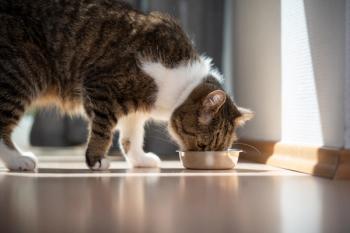
FDA guidance promotes antimicrobial stewardship through increased veterinary oversight
Antimicrobial stewardship has taken the human health world by storm, and now, it’s securing its place in veterinary medicine.
Antimicrobial stewardship can safeguard animal, public, and environmental health. On June 10, 2021, the U.S Food and Drug Administration (FDA) released guidance for industry (GFI) #263 for the purpose of promoting antimicrobial stewardship.1 This writing summarizes the key points of GFI #263 because as time goes on, the restrictions will be greater. The finalized policy, which will be fully implemented by June 2023, has garnered much support but also some criticism. This program aims to reduce microbial resistance and prevent the spread of infections caused by multidrug-resistant pathogens. Veterinarians can—and should—promote antimicrobial stewardship through patient education and prescribing antibiotics only when they are truly needed.1
This guidance allows animal drug companies to voluntarily change the marketing status of its over-the-counter (OTC) antimicrobial medications to prescription status. GFI #263 recommends a 2-year timeframe for these drug companies to voluntarily make the change, but we may see some product change in 2022.2 Prior to this guidance, only certain injectable products and antibiotics used in animal feed and water required a prescription. GFI #263 brings all medically important antimicrobials under veterinary oversight. The FDA is working closely with stakeholders and state partners to educate them about GFI #263 and to provide assistance.
The change in marketing status would mean that the OTC antimicrobials would be available only through a veterinarian consult or prescription. Veterinarians' oversight of the frequency and use of antimicrobials will increase, and they will decide if these medications are truly necessary.
Farmers and ranchers are concerned that this guidance can potentially be costly, timely, and prevent easy access to medications that they have always used.3 To counteract this concern, the FDA states that prescription medications do not necessarily have to be purchased from the veterinarian; they can be purchased through other distributors with a veterinarian prescription. To prevent a time burden, depending on the state requirements, veterinarians are generally not required to physically examine each animal to be able to issue a prescription.
Requiring a veterinarian prescription prevents the potentially inappropriate widespread use of OTCs in food-producing and companion animals. Limiting inappropriate antibiotic use in animals reduces the risk of transmission of drug-resistant bacteria to humans. Humans can easily become exposed to antibiotic-resistant pathogens after handling or eating contaminated food or coming into contact with animal waste.
One of the goals of GFI #263 was to preserve the effectiveness of medically important antimicrobial drugs in both humans and animals.
Veterinarians' oversight can preserve antimicrobial effectiveness if they select the most appropriate medication to combat the pathogen and choose the proper dose. Their high level of expertise and clinical knowledge makes them crucial promoters of antimicrobial stewardship. Increasing veterinarian authority over medications will only provide beneficial effects for antimicrobial stewardship.1-3
Isabella L. Bean is a 2022 PharmD Candidate at the University of Connecticut
References
- U.S. Food & Drug Administration. FDA Finalizes Guidance to Bring Remaining Approved Over-The-Counter Medically Important Antimicrobial Drugs Used for Animals Under Veterinary Oversight. June 10, 2021. Accessed January 8, 2022. https://www.fda.gov/animal-veterinary/cvm-updates/fda-finalizes-guidance-bring-remaining-approved-over-counter-medically-important-antimicrobial-drugs
- Hyun D, Sherburne H. FDA Will Require Veterinary Oversight for All Animal Antibiotics Important to Human Medicine. The PEW Charitable Trusts. Updated July 22, 2021. Accessed January 9, 2022.
https://www.pewtrusts.org/en/research-and-analysis/articles/2021/07/13/fda-will-require-veterinary-oversight-for-all-animal-antibiotics-important-to-human-medicine - McReynolds, Tony. FDA finalizes guidance on over-the-counter antimicrobials for veterinary use. American Animal Hospital Association. June 17, 2021. Accessed January 8, 2022.
https://www.aaha.org/publications/newstat/articles/2021-06/fda-finalizes-guidance-on-over-the-counter-antimicrobials-for-veterinary-use/
Newsletter
From exam room tips to practice management insights, get trusted veterinary news delivered straight to your inbox—subscribe to dvm360.






